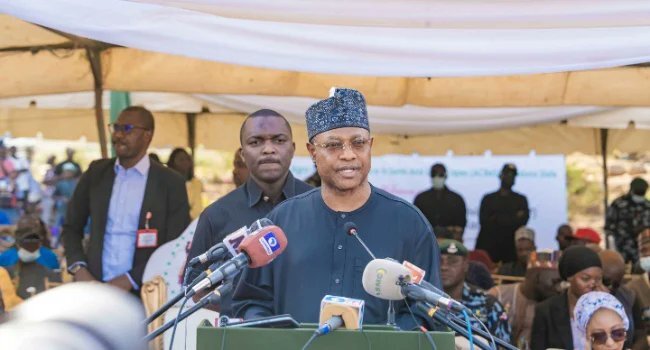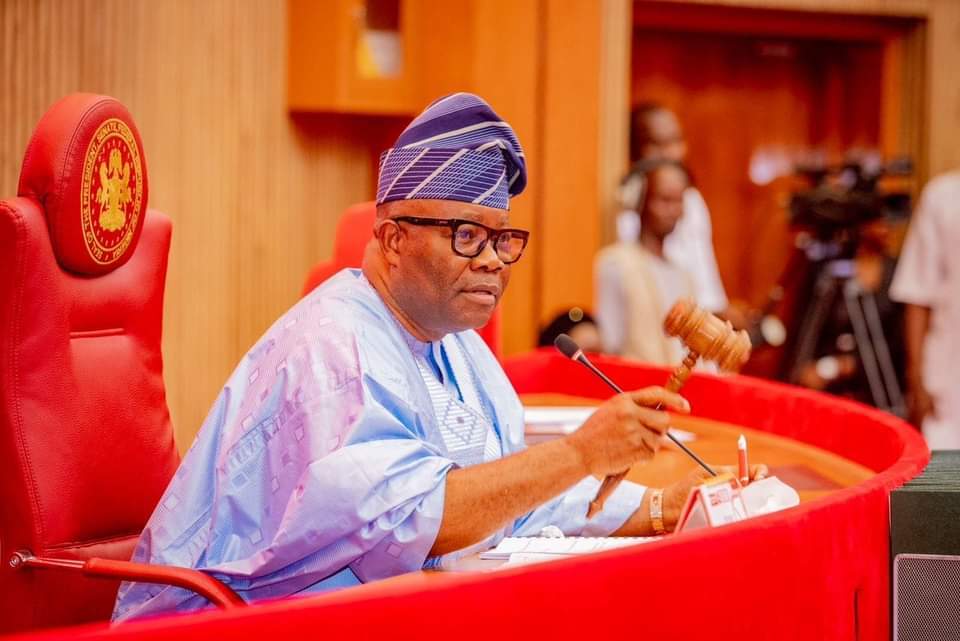By Abubakar Yunusa
Uba Sani, Kaduna state governor, says 10 communities received $25,000 cheques each from the community revolving fund to support farmer groups.
According to a statement by the state government, the cheques presented on Saturday amount to a total of N375 million.
Sani explained that the World Bank-assisted Agro-Climatic Resilience in Semi-Arid Landscapes (ACReSAL) Project provided the fund to help beneficiaries invest in climate-smart rain-fed agriculture.
The benefitting communities include Anchau, Kuzuntu, Kubau, Zuntu, Jenau, Likoro, Jaja, Hunkuyi, Kudan, and Danmahawayi.
Sani said the fund aligns with his administration’s commitment to rural transformation, which is designed to support registered farmer groups under the umbrella of community interest groups (CIGs).
“Kaduna state is proud to be at the forefront of initiatives aimed at combating climate change and ensuring sustainable livelihoods for our people,” he said.
‘’Over the years, we have implemented a range of strategic policies and programs designed to enhance ecological conservation, mitigate the impact of climate change, and promote economic resilience among our citizens.
‘’With the support of ACReSAL, the State Government unveiled a 10-year Climate Change Policy, trained 500 women, youth, and school-feeding vendors in the production of biomass briquettes as an alternative to wood fuel.”
Also, Sani said his administration disbursed loans in Kudan and Kubau local governments under phase one of the initiative, covering a total of 82 CIGs.
He further explained that phase two would commence in the second quarter of the year, including four local governments in the central and southern senatorial zones, alongside two area councils in the northern senatorial zone.
According to the governor, the concluding phase of the implementation will cater to the remaining 11 local government areas in the state.
Joy Agene, the task team lead of the ACReSAL project, praised the government for its commitment to environmental sustainability, saying that the state remains one of the best-performing sub-nationals in the country.
Balarabe Lawal, minister of environment, also spoke at the event, stressing that the community revolving fund is a loan, not a grant, and must function as an investment fund for community and farmer groups.
‘’The loan is intended for communities, facilitating circulation among farmers and sustained through groups that ensure the loan remains active within your community via timely repayment, thereby enabling other farmers to reap the benefits,’’ he said.
“The ACReSAL project constitutes a significant component of the Federal Government’s aim to rehabilitate one million hectares of degraded land, contributing to the overarching goal of restoring four million hectares by the year 2030.
‘’The initiative will additionally contribute to diminishing the susceptibility of countless individuals living in extreme poverty in northern Nigeria, thereby enhancing their capacity to engage in the stewardship of their surroundings.”
At the event, Sani announced the procurement of the amphibious excavator, otherwise known as a swamp buggy, to prevent and control erosion, deepen waterways, and maintain and clean rivers.










